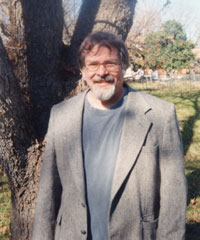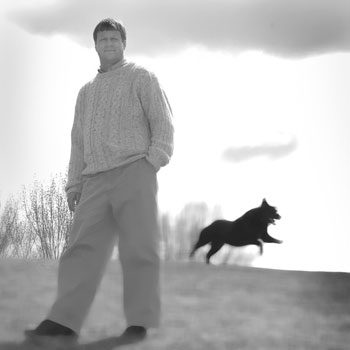War Poetry Contest 2003
Congratulations to the winners of our 2003 poetry contest on the theme of war!
Honorable Mention $50
- George Adams, The Altar
- Beth Ferris, Hunger Strike at Sincon Prison
- Stacey Fruits, The Choreography of Four Hands Descending
- Atar Hadari, Summer Rain, Two Lights
- Carrie Preston, You Haven’t Killed Anyone
Finalists
- Darla K. Beasley, Surfacing, The Gyroscope
- Richard Brostoff, Waiting for Him
- Dana Curtis, A Journal of the War Years
- Samuel Exler, USO Dance: Colorado Springs, 1944
- Judith Goldhaber, The Curse: A Fairy Tale for the New Millennium
- Greg Grummer, Portraiture
- Van Hartmann, The Cutters, Smokestack
- Bergen Hutaff, Decorum
- Tim Leach, The Charge of the 196th Light Infantry Brigade, Choicest Product of the Brewer’s Art
- Jack Lindeman, Campaign: 1943-1946
- Charlotte Mandel, Documentary, Afghanistan
- Mark Mansfield, Past Liberty
- Gerry McFarland, Gunner Tries to Die, Gunner Tells What Happened, Gunner Apologizes for Not Shooting
- Martin Steele, Sarel and Samson
- Michael Swan, Proverbs in Time of War
- Brenda Tate, Cleansing, Let Us Prey
- Chandra Toucher, Winter Moon (A Soldier’s Thoughts)
Thanks to everyone who entered our second annual War Poetry Contest. We received 734 entries of one to three poems each. The quality of the entries made this contest even harder to judge than last year's. So many of the poems, even those that didn't make it to the finalist stage, told a gripping story or contained an image that made me catch my breath. The winners were those that sustained this level of craftsmanship throughout the entire poem.
Criteria
Judging a contest is subjective, but not arbitrary. Reading each poem, I had these basic questions in mind: Does the author use language in a fresh and interesting way, pleasing to the ear as well as to the imagination? Does the poem make you care about the events or characters it depicts? Is the tone nuanced rather than polemical or sentimental? Does it have something substantial to say?
These criteria could cut against one another. Longer poems tended to have richer detail and more complex ideas, but some became baggy in the middle, with stretches of pedestrian language between the truly original phrases. Shorter poems, though more tightly crafted, didn't always provide as memorable an experience as the battlefield sagas.
At the shortlist stage, the judge's subjectivity comes to the forefront. When ranking poems of roughly equivalent technical merit, it came down to whether I felt a personal bond with the poem. This is a physical connection - relishing the beat of the words, the counterpoint of sounds - at least as much as an intellectual appreciation of the poem's meaning. I know that the cadences that ring well in my ear may not be to another's taste. The ideas that seem profound to me may strike others as simplistic or wrong-headed. At times like this I am glad that there are so many contests and magazines catering to all different aesthetic philosophies.
Themes in the Poems
The Iraqi conflict inspired many of this year's poems, either as a direct topic or as a shadow of anxiety in the background. Contemporary wars - Bosnia, the Middle East, Vietnam, World War II - seemed more popular than historical subjects this year as compared to last. Poets also struggled to find a voice to capture the tragedy of September 11. Two of this year's Honorable Mention winners, "The Choreography of Four Hands Descending" and "Summer Rain"/"Two Lights", succeeded by looking away from the terrifying scenes that we all came to know too well. Violent death was present but unspoken, unbearable to speak about. Both poets relied on elements of fantasy, in the way that writers have always used fairy tales to convey truths too powerful to confront directly. As Emily Dickinson said, "Tell all the truth but tell it slant" (#1129).
Too many of the antiwar poems fell into the cliché of blaming "big boys with their big toys" for making war. There were too many self-congratulatory poems in which the speaker, safe on the homefront, is appreciating the preciousness of the natural world while lamenting her leaders' lack of enlightenment. "You Haven't Killed Anyone", another of our Honorable Mentions, stood out from the rest because its compassionate vision was large enough to honor multiple perspectives, to understand the soldier's tragic role as both killer and protector.
The Winners
Robert Randolph's "Floating Girl" seduced me with its delicately beautiful and strange imagery, its musical cadence that never falters, as the child slain in war leads the reader into the dream-world between life and death. Mr. Randolph takes that most cliché of subjects, the death of an innocent child, and dares to make it fresh and new. He accomplishes this by using poetic language in an impressionistic, nonreferential way. Many of the images in "Floating Girl" are not traditional metaphors, not analogies we can pick apart to find a "meaning," but surreal sensory impressions that create an unbroken mood of loss and transformation.
Joel Long's "Broken Windows at Reims" combines spiritual depth with vivid journalistic detail, recounting the aftermath of the bombing of France in World War I. In the ruin of Reims Cathedral, the soldier protagonist seems to see the hopes of European civilization brought low. Mr. Long wisely refrains from spelling out these themes, allowing the scene to speak for itself. The poem is full of ironic contrasts: for instance, the damaged sculpture of souls rising from their graves on the day of judgment overlooks a cemetery where the tombs have been ripped open by a bomb. Yet the soldier resists the "promise/ of annihilation of even sacred things," as he fumbles toward a faith that can exist amid such brokenness. This spiritual insight, expressed particularly in the profound last stanza, gives the poem its compelling power.
Patricia Monaghan's prose-poem "Soldier's Heart" was unique among our entries in creating an imaginary world for her war story, a saga of the Lear-like madness of a warrior king. Or is it that the warlike world of men is mad, and Sweeney alone is sane, hiding like a crow in a tree lest he be tempted back to fight? The poem tells a gripping story, full of blood and magic.
Thanks again to everyone who entered. There were so many talented writers in this group, I feel sure that some of you will win other prizes, even if you didn't win this year. It was an honor to share your stories and see through your eyes.
Contest Judge

Jendi Reiter
Jendi Reiter is vice president of Winning Writers, editor of The Best Free Literary Contests, and oversees the Winning Writers literary contests. Jendi is the author of the novel Origin Story (Saddle Road Press, 2024), the short story collection An Incomplete List of My Wishes (Sunshot Press, 2018), the novel Two Natures (Saddle Road Press, 2016), the poetry collections Introvert Pervert (The Word Works, 2026), Made Man (Little Red Tree Publishing, 2022), Bullies in Love (Little Red Tree Publishing, 2015), and A Talent for Sadness (Turning Point Books, 2003), and the award-winning poetry chapbooks Swallow (Amsterdam Press, 2009) and Barbie at 50 (Cervena Barva Press, 2010). Awards include two Massachusetts Cultural Council Artists' Grants for Poetry, the 2016 New Letters Prize for Fiction, the 2016 Rainbow Award for Best Gay Contemporary Fiction, the 2015 Wag's Revue Poetry Prize, the 2013 Little Red Tree International Poetry Prize, the 2012 Betsy Colquitt Award for Poetry from Descant magazine, the 2011 James Knudsen Editor's Prize in Fiction from Bayou Magazine, the 2011 OSA Enizagam Award for Fiction, the 2010 Anderbo Poetry Prize, and second prize in the 2010 Iowa Review Awards for Fiction. Jendi's work has appeared in Poetry, The New Criterion, Mudfish, Passages North, Cutthroat, Best American Poetry 1990, and many other publications. See their interview in RoundPier.









